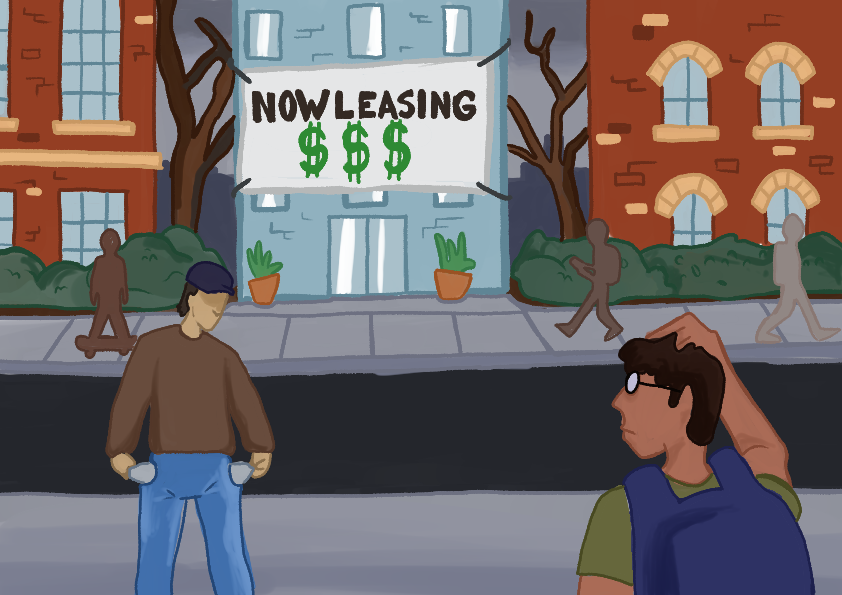Many NC State students and alumni have enjoyed off-campus living, but high rent prices around the city of Raleigh makes it increasingly difficult to find affordable housing.
Julia Mattox, a fourth-year studying environmental engineering, said her experience trying to find an affordable apartment to move into after graduation has not been easy.
“Raleigh has definitely gotten really expensive, and it’s definitely a lot more expensive than Cary,” Mattox said. “A lot of the places that would be most convenient for me to live in in Raleigh would either be downtown or close to Glenwood, and even something that’s small, like 550 square feet, is still $1,400 which is absolutely insane.”
Mattox said she is optimistic about rent control but believes there just aren’t enough apartments available in general.
“Rent control would help, but we also just need more housing in Raleigh,” Mattox said. “There are so many buildings that could be renovated.”
Steven Greene, professor of public and international affairs, said rent control isn’t likely to come about in Raleigh any time soon.
“[Rent control] is where local government sets caps on rent in certain locations,” Greene said. “Since it has not even been part of North Carolina politics … this is something that would be more likely to pass with a Democratic trifecta, which, who knows when we’ll ever see that again.”
Rent control isn’t as cut-and-dry of a solution as many think, Greene said.
“The costs [to live in Raleigh] are more hidden and more diffuse and that makes [rent control], I think, a popular policy,” Greene said. “It’s big in New York. I know that the only way that the friends were able to have their apartment is because it was rent controlled.”
Greene also said due to the political barriers and other limitations of implementing rent control, there may be better solutions out there such as the Yes In My BackYard movement, which advocates for housing development as a solution to out-of-control rent prices.
“You have Liberals saying, shall we say, ‘The rent is too damn high,’” Greene said. “One of the ways to lower that is to simply make more housing available. The reason housing is not available is because of regulations. It appeals to Conservatives too.”
Greene said these sorts of alternative solutions are better for multiple reasons.
“Some of the [alternative] solutions are probably not only more efficient policies, but they’re more politically feasible in the sense that you have more bipartisanship on some of these,” Greene said.
Finally, Greene said real policy change could come about if people, especially students at NC State, pushed for these alternative solutions.
“Those are the types of policy changes that people should be pushing for and I think would have a lot more prospects than something like rent control which I see as a much more brute force instrument,” Greene said. “Some of the other solutions are not only more efficient policies but more politically feasible.”













